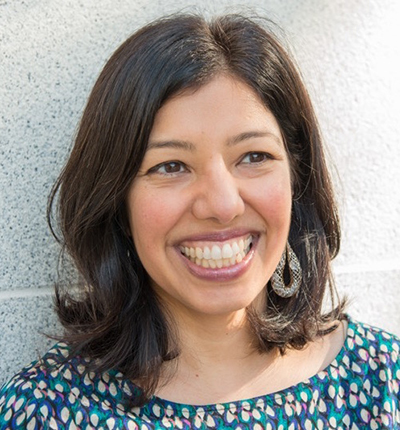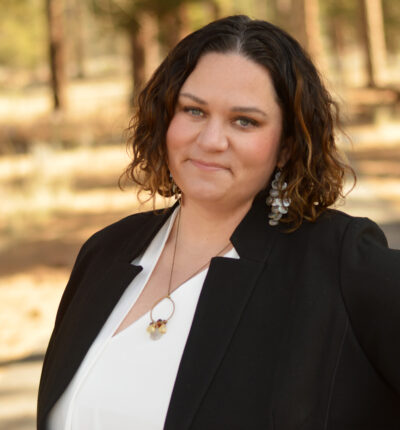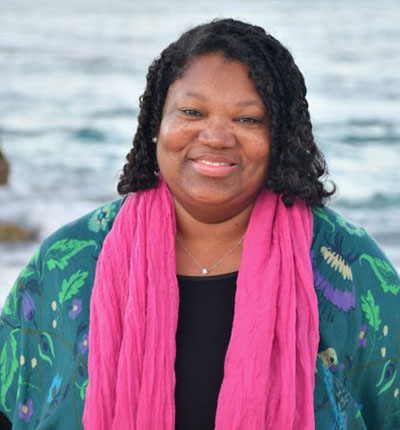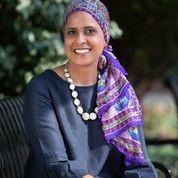2023-2024 Fellows Projects
Each NCFP Fellow explored an issue in family philanthropy and used that exploration to advance practices that centered accountability, equity, learning, and relationships in family philanthropy. Learn more about their experiences below. Visit this page for more general information about NCFP’s Fellows Program.
 A New Era of Philanthropy: How We Fund in Times of Crisis and Opportunity
A New Era of Philanthropy: How We Fund in Times of Crisis and Opportunity
The exploration:
My fellowship project was inspired by a big question: what is a philanthropy for our times, one that can meet this moment of polycrisis? We are living in consequential times and there has been a growing sense that the philanthropic tools, mindsets and practices that have long characterized the sector are ill suited for these times. The question at the heart of my fellowship project/book is, how can we take this infrastructure of philanthropy (with its growing resources) and repurpose it to the meet the moment we live in, to shift who has power and wealth and to go beyond covering over (or gilding) unjust systems to actually transforming them.
The outcome:
The outcome of this exploration is a forthcoming book I authored, A New Era of Philanthropy, that offers ten practices for a philanthropy that meets this moment by transforming wealth into a more just and sustainable future. A New Era tells a story of a new and emerging philanthropy, one that is fundamentally different in purpose, story and practice from the first 140 years of modern philanthropy. The book is organized into ten chapters, each focused on reimagining a key philanthropic practice, from investments to governance to grantmaking to crisis funding and beyond. The book offers a blueprint for how we can use the excess wealth of our times to build a future in which all communities flourish.
The process:
Writing a book is an immersive and multi-stage process. As a new author, I am grateful for all that I learned during this fellowship, both about my subject matter and about writing. My chapter on reimagining governance is a good example of how this book advances effective family philanthropy. In my field interviews governance was repeatedly identified as a blocker of progress, rather than a facilitator of it. Existing resources about philanthropic governance tend to focus on fiduciary duties, bylaws and other legalistic norms. I took a different and deeper approach, exploring how power, accountability and identity operate in philanthropic governance. In the chapter I offer historical grounding to help us understand how we arrived at a private foundation governance model that is characterized by low proximity, accountability and transparency. Drawing from interviews with trustees and staff, I identify a set of barriers to effective governance as well as practice breakthroughs that boards can make. I have been sharing this content and research with family foundation boards to support their evolution towards more impactful philanthropy.
Related resources and information:
You can read more about “A New Era of Philanthropy” here and order the book. My book website will be complete in early December.
In addition, during my fellowship I published two opinion pieces:
- For Philanthropy, This Actually Isn’t 2016 All Over Again, published in The Chronicle of Philanthropy
- Staying the Course: The Need for Mission-Driven Spending in Turbulent Times, published in Inside Philanthropy
 Funding Rural Podcast
Funding Rural Podcast
By Erin Borla
The exploration:
How can philanthropy better serve rural and remote communities and spark systemic change?
In the latest study, as shared by the FSG report in 2021 only 7 percent of philanthropic dollars, nationally, goes toward rural America; and only 0.4 percent supports Native-led or Native-serving projects (Native Americans in Philanthropy 2019).
My goal with this project was to elevate stories of hope and resilience from rural and Indigenous spaces, and to provide resources to inspire and prepare philanthropists to increase their understanding of impacting these communities.
The outcome:
We have indicators of the growing awareness of the need to support rural and Indigenous spaces.
The podcast landing pages had more than 2,400 visitors during season 1, with more than 4,200 page views, which tells us people are interested and returning to learn more. Season 1 brought more than 3,700 listeners on Spotify, which is one of the many listening platforms.
Since launch, I have accepted invitations to speak or moderate panels at gatherings where the messages of Funding Rural could resonate including the Biodiversity Funders Group, Affiliated Tribes of NW Indians – Economic Development Corporation Conference, and others.
The podcast earned media attention in The Daily Yonder, a national online publication from the Center for Rural Strategies, and in two esteemed publications that speak to the audiences we most want to influence: Inside Philanthropy and The Chronicle of Philanthropy.
The process:
I worked with accomplished podcast producer Ashley Ahearn to record Funding Rural, hone the messaging, and dial in the interviews. I then collaborated with a communications team to develop a launch campaign. We used numerous marketing channels including guerilla marketing, email marketing, digital and social media. We also did targeted media outreach.
I never want these stories to be about me—the point is to elevate others who are doing inspiring things—but I realized that I need to leverage my platform as the Roundhouse Foundation’s executive director and start posting and sharing these stories on social media: LinkedIn in particular. Through steady content sharing, I’ve gained more than 1,000 followers, which helps to amplify the stories on the podcast and the organizations supported by Roundhouse Foundation and others doing impactful work in rural and remote areas.
Learn more:
Learn more about Funding Rural and listen to the podcast here.
 Unlocking Doors: Relational Reparations in Family Philanthropy
Unlocking Doors: Relational Reparations in Family Philanthropy
The exploration:
My project explored the potential of relational reparations within family philanthropy by addressing pivotal questions: What if we were transparent about the origins of our wealth? How can wealth holders show up with humility and vulnerability? And what does it mean to genuinely engage in reparative actions? The aim was to challenge and redefine traditional philanthropic dynamics, fostering an environment where mutual vulnerability could lead to systemic change and deeper community trust.
The outcome:
The outcome was transformative, revealing that when individuals engage honestly, humbly, and vulnerably, profound systemic change is possible. The project facilitated meaningful dialogues and initiatives, prompting participants to consider their roles within philanthropy critically. These conversations led to actionable insights and strengthened community bonds, demonstrating that “mutual vulnerability unlocks a door to solutions and an opportunity to trust and work with each other in ways we haven’t yet realized.” This shift towards relational reparations has begun to redefine the landscape of family philanthropy, making it more inclusive and impactful.
The process:
The approach was grounded in collaborative storytelling and genuine engagement, facilitated by Lis Echohawk Kawe and Erika Ward of Headwater People. By conducting interviews and fostering group discussions with wealth holders and community participants, we gathered rich narratives that illuminated the complexities of wealth, responsibility, and community engagement. This process—supported by partners including the National Center for Family Philanthropy, Bernier McCaw Foundation, Compton Foundation, and Black Ivy Foundation—not only gathered valuable data but also affirmed the participants’ journeys as essential to the ongoing work of relational reparations. “This report is a testament to the power of story—stories that are not always perfect but are always real, reflecting our hard, messy, and beautiful journeys.” This collaborative and inclusive approach underscored that effective change in family philanthropy does not occur in a vacuum; it requires collective effort and partnership to challenge stakeholders to reassess their roles and embrace more humanity in their practices. The best practice in this work is to show up in your full humanity to allow others to show up in theirs.
Learn more:
Read the report, “Weaving Reparative Futures: The Power of Returning Resources to Black & Indigenous Women,” here.
 Inspired Generosity
Inspired Generosity
The exploration:
My fellowship explored how to reclaim and shift Muslim American narratives to highlight the generosity of the community, help Muslim Americans see themselves as philanthropists, and help funders understand the value of funding Muslim-led nonprofits.
The outcome:
The Inspired Generosity exhibition creates opportunities for Muslim American donors, volunteers, nonprofit leaders, and individuals to share their own stories of generosity inspired by faith through poetry, artwork, videos, and more. These stories show us that Muslim philanthropy is American philanthropy.
The process:
Through the fellowship, the WF Fund created a website for storytellers to upload their generosity stories, photos and the mission of their organization. For the first exhibit at the Auburn Avenue Research Library in Atlanta, we collected a total of 200 stories nationally. The selection committee, which consisted of philanthropy and community organizers, chose 50 stories to showcase. Each city Inspired Generosity will travel to in 2025 and 2026 will have local stories and artists to highlight the talent in the city.
During the exhibit’s six-week run in Atlanta, we held four private events that brought philanthropy leaders, religious leaders, and the local community together to view the generosity stories, which engaged the diversity of the Muslim population, including narratives from Latin America, African Americans, Asian Americans, and more. During the six weeks the exhibition was at the library, the local host committee held film screenings, panel discussions, and other educational events.
Future exhibitions will display national and local stories for four to six weeks, during which time a variety of events will engage the community in conversations, fellowship, and learning.
Related resources and information:
- Visit the Inspired Generosity website here.
- Read articles about the exhibit
- How this Muslim Family Foundation is Hoping to Change Philanthropy, One Story at a Time, published in Inside Philanthropy
- A New Exhibit hopes to Change Perceptions of Muslim-Led Nonprofits, published in the Chronicle of Philanthropy
We’re here to equip you with the tools you need to make a meaningful impact. Contact NCFP for support.
Keep up with trends in family philanthropy. Subscribe to our newsletter.
Gain access to personalized support and a network of peers. Join our community!
